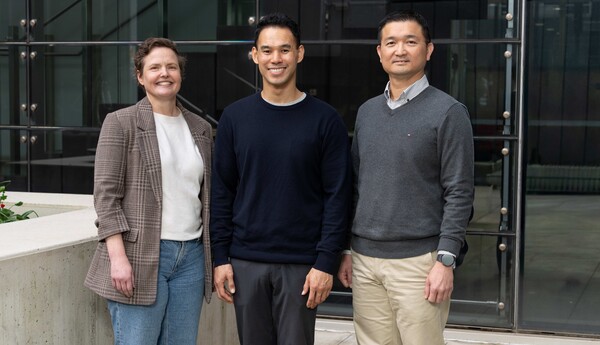Scientists at the Walter and Eliza Hall Institute (WEHI) have uncovered how a key group of immune cells adapts its behaviour depending on the type of infection, opening new pathways for vaccine design and targeted treatments for immune-related diseases.
The study, published in Nature Immunology, demonstrates how T follicular helper (Tfh) cells, a key player in the immune system, adjust their instructions to B cells in response to various pathogens. By tailoring their signals, Tfh cells help generate antibodies that are both specific and long-lasting.
“This is fundamental research that helps us understand the core mechanics of our immune system: how it responds to different threats and how we might guide it more precisely,” said Associate Professor Joanna Groom, who led the study. “It’s the kind of science that doesn’t just answer questions – it opens up new possibilities for improving human health across a wide range of conditions.”
The research revealed that cytokines, signalling molecules in the immune environment, act like a control panel, enabling Tfh cells to adjust their instructions. This flexibility allows the immune system to mount precise responses to viruses, parasites, and bacteria. However, when Tfh cells become dysregulated, they can contribute to harmful conditions such as autoimmunity, allergies and asthma.
First author Lennard Dalit said the work offers tools for fine-tuning immune responses. “This opens the door to designing better vaccines, especially for complex infections like parasites and bacteria, where current vaccines are less effective,” he explained.
A key strength of the project was its integration of infection models developed in collaboration with Monash University and clinical insights derived from human tissue samples provided by the University of Melbourne. These included tonsil, adenoid and blood samples from multiple cohorts, allowing the team to track Tfh behaviour during COVID-19 infection, recovery, and vaccination.
The findings also identified new biomarkers that could help clinicians monitor immune activity in real-world settings, offering proof that Tfh cell behaviour can be measured in blood as well as in lymphoid organs.
According to Groom, the research provides “a comprehensive resource for developing diagnostics and future therapies.” The team is now working to apply these insights to vaccine development and explore how immune responses might be reset in autoimmune disease.
By mapping this molecular “instruction manual,” WEHI researchers have provided a new foundation for harnessing the immune system more precisely, whether to improve vaccine efficacy, correct harmful immune activity, or strengthen defences against some of the world’s most challenging diseases.
